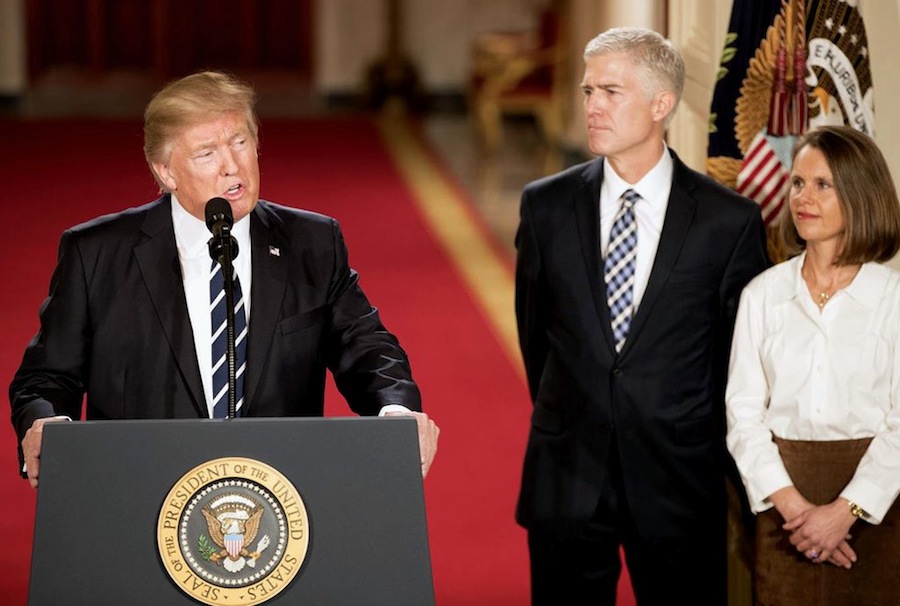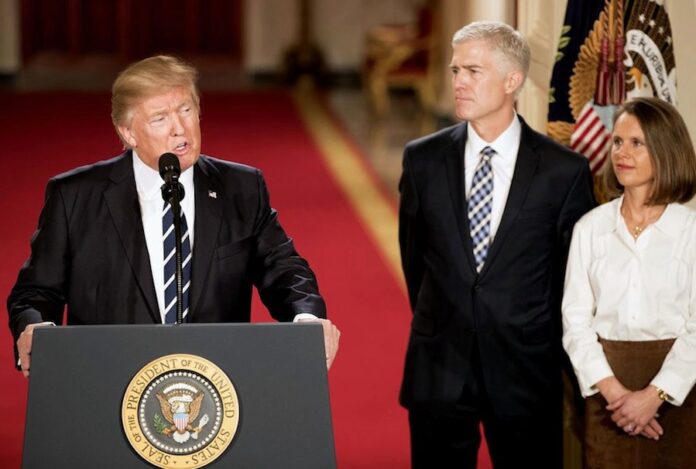
 Checks and balances help ensure one branch of government not too powerful
Checks and balances help ensure one branch of government not too powerful
Since it was ratified in 1788, the United States Constitution has served as the bedrock of our nation’s democracy. As the supreme law of the land, it’s what our country turns to in times of turbulence when the way ahead seems unclear. As we move into a new era of politics, and our existence as a democracy is questioned, the power of the people reminds us exactly why democracy is so vitally important.
It’s been just over a month since President Trump was elected, and he’s kept himself busy. Going in, there was a lot of speculation that his large business empire, now helmed by his children, might provide a strong conflict of interest with his duties as president and his oath to the Constitution. He’s only proved us right.
Kellyanne Conway, a counselor to the president, recently misused the powers of her public office by promoting Ivanka Trump’s fashion line on-air. In her libel lawsuit against a tabloid, Melania Trump charges that she lost the opportunity to use her status as First Lady to promote her products in the fashion industry. The Trump family is obviously more interested in using Trump’s presidency for their own profits, rather than for the good of the nation.
In a break from tradition, Trump has been the only president to not release his tax returns despite being repeatedly asked to do so. Reports suggest that he may not have paid his taxes for the last 18 years. Coupled with his delay in releasing ownership and resigning from his organization, his actions raise questions about his real motives. A lawsuit filed against him alleged that he violated the Constitution by allowing his business operations to receive payments from foreign governments.
The most alarming news may be when the FBI and CIA confirmed what many had suspected all along — that Russian hackers may have tampered with the 2016 elections, and Trump may have received their aid when running for president. If the reports are true, the implications would be disastrous for both the United States and the world. The fact that our own president could be allied with one of our biggest enemies is a grave concern.
If we needed further proof that our current president has no regard for the Constitution, we need only look at the most controversial law he has passed in office so far — the immigration ban. With one hasty stroke, Trump immediately banned all travelers from seven Muslim-majority countries from coming into the United States, but excluded the countries where his organization maintains business ties, such as Saudi Arabia. He has also temporarily banned all refugees from Syria, leading to mass protests and panic at airports across the country. Although it doesn’t state so clearly, the law is intended to target Muslims — a clear violation of the Constitution.
Perhaps Trump didn’t think this through — the same Constitution that he has ignored has also made sure that America continues to uphold the values that it was built on. A few weeks after Trump issued the ban, a panel of judges for the Ninth Circuit Court of Appeals in San Francisco found the ban unconstitutional and struck down most of its key elements.
The president can also face opposition from not just Democrats, but also his own party. John McCain’s outspokenness against many of Trump’s policies may have cost him some standing among Republicans, but he has gotten his underlying message across — Trump is unfit to be president.
The Constitution grants us rights and liberties that cannot be taken away, and protects us from those in positions of power. The fundamental principle of a democracy is that the people make decisions about who makes their laws and how they are implemented. This also means that the people’s responsibility doesn’t end after voting. Citizens are equally responsible for the actions of the people they elected. To keep a democracy alive, the people of a country need to play an active part in all aspects of decision making.
Our founding fathers had many checks and balances put into place so the power to rule the country would ultimately be in the hands of the people. The governmental power would be distributed among many branches — executive, legislative and judicial — rather than concentrated in just one place. But these branches are nothing without the people, and the Constitution is just a piece of paper unless the common man rises to enforce it.
Written by: Shohini Maitra — samaitra@ucdavis.edu
Disclaimer: The views and opinions expressed by individual columnists belong to the columnists alone and do not necessarily indicate the views and opinions held by The California Aggie.





